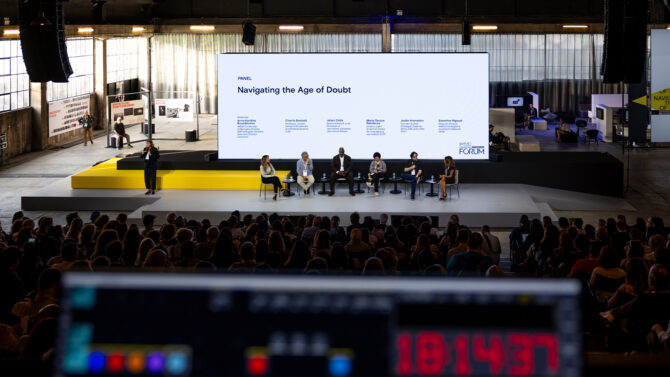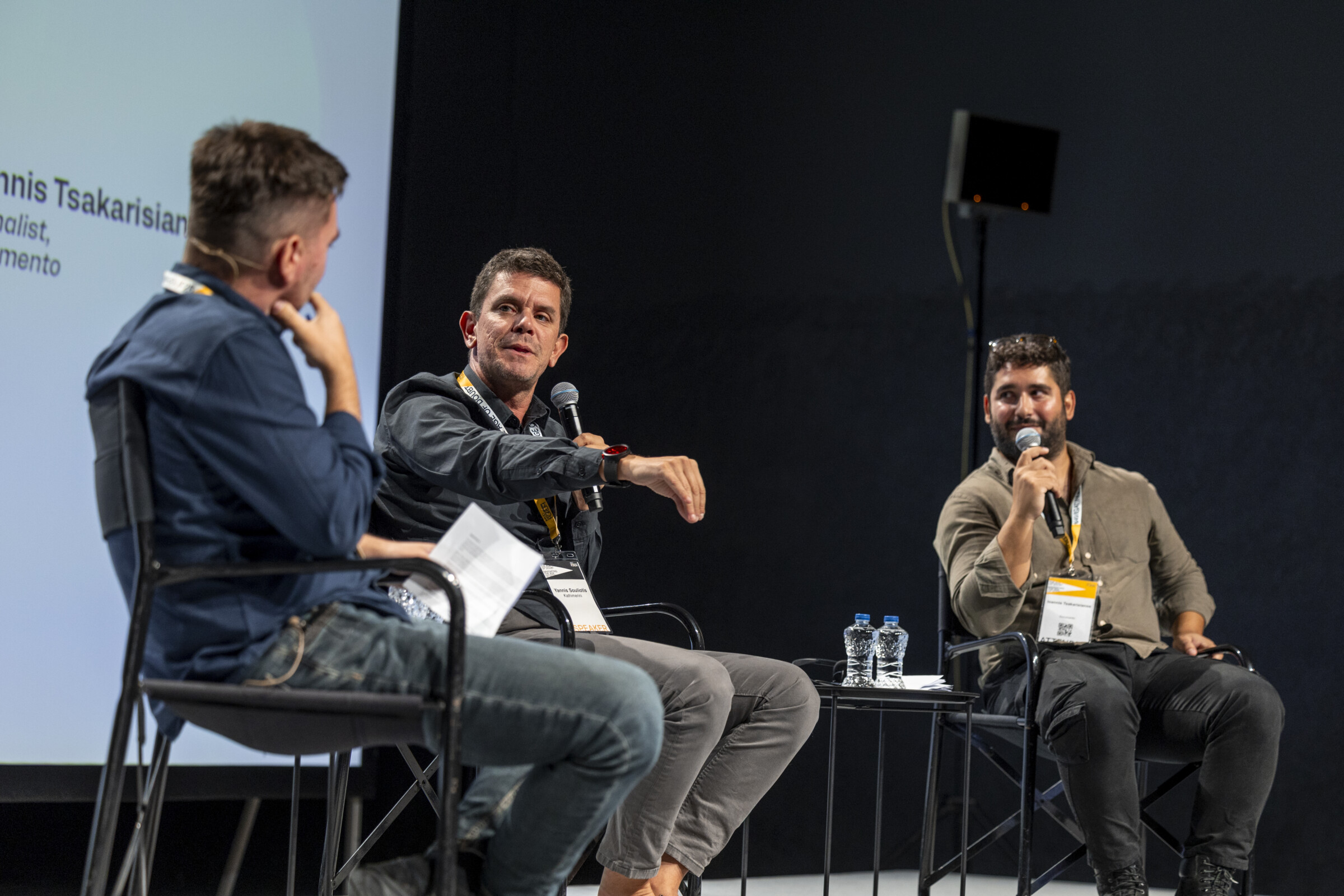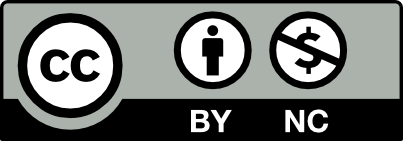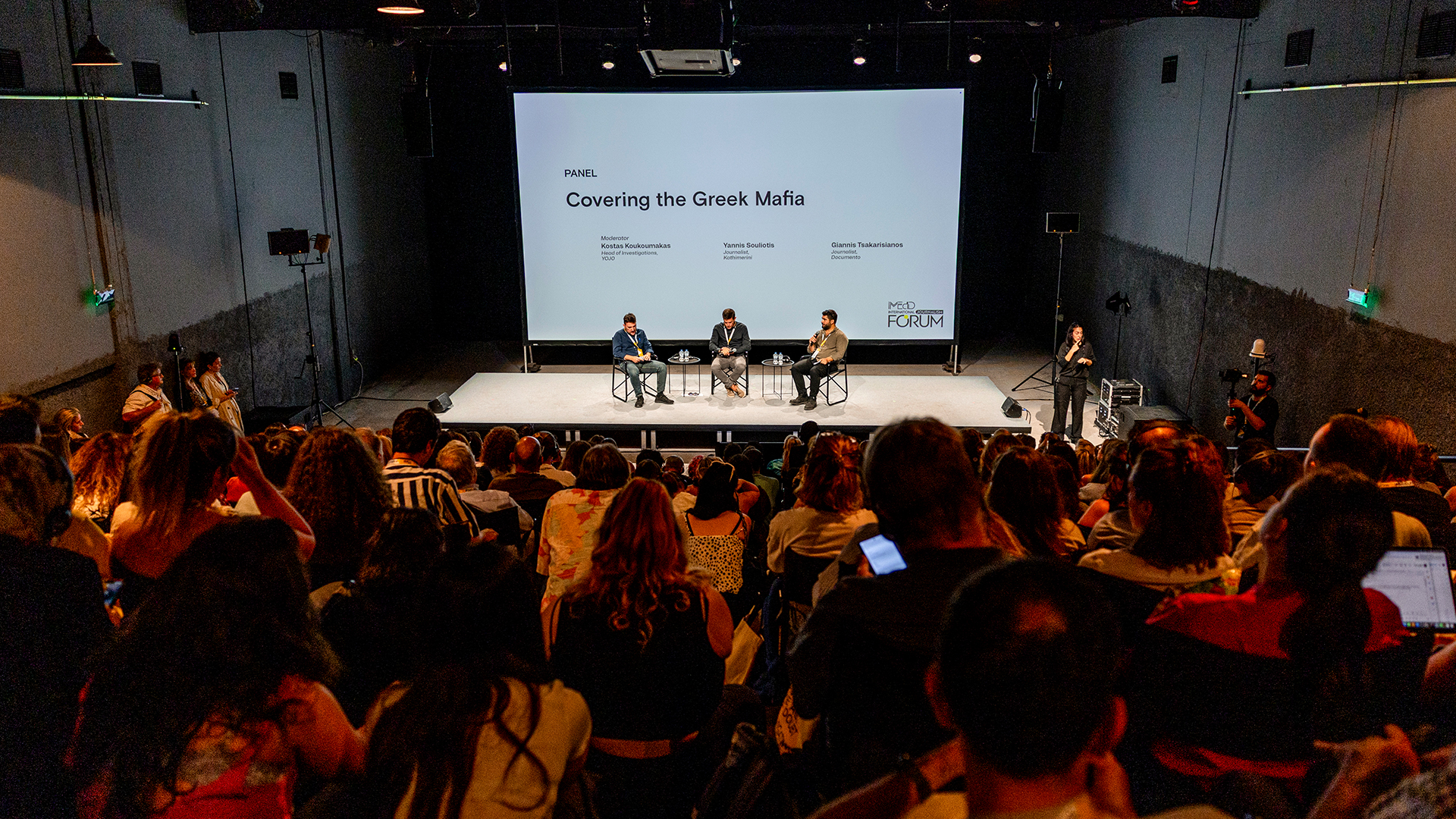Two journalists from different generations, Yannis Souliotis and Giannis Tsakarisianos, who both cover the so-called “Greek Mafia,” spoke at the iMEdD International Journalism Forum.
Translated by Anatoli Stravroulopoulou
Photos: Alex Grymanis, Christos Karagiorgakis / iMEdD
“Navigating the Age of Doubt”: Journalists Debate Survival, Trust and the Future of their Mission

The opening panel of the iMEdD International Journalism Forum 2025 highlighted a profession in flux, balancing threats and opportunities, technology and human values, skepticism and public service.
“The Greek Mafia wars are mainly fought among enforcers. They run gas stations and other legitimate businesses, they file tax returns, but at the same time they are involved in illegal trades— cigarette smuggling, fuel smuggling, and in some cases drug trafficking […] They also maintain strong ties within the Greek police and law enforcement, and sometimes perhaps even with political circles.”
That was how Yannis Souliotis, a reporter for Kathimerini and SKAI TV, opened the panel discussion “Covering the Greek Mafia,” on the iMEdD International Journalism Forum’s second day. “An old prison guard once told me that in the underworld, what matters isn’t why someone was killed, but why the underworld thinks they were.”
So what exactly do the media mean when they talk about the “Greek Mafia”? Why have there been more than 25 contract killings in Athens over the last five years, including that of journalist Giorgos Karaivaz? How do journalists manage access to sources? And what happens to journalistic ethics when they are forced to make difficult choices? These were some of the key questions raised in the discussion.
According to an earlier statement by Minister of Citizen Protection Michalis Chrisochoidis, organized crime in Greece may not be ideological, but it generates huge amounts of money and launders it through business activities. If that money seeps into state institutions, he warned, “then we will have a true mafia problem.” Both panelists agreed that Greece crossed that red line long ago.
The “right connections in the police”
Giannis Tsakarisianos, a reporter for Documento, makes a point of using the term “Greek Police Mafia” in his coverage of organized crime: ” Anyone who wants to operate at the highest level of organized crime needs the right connections—in the police, customs, tax authorities, and other state mechanisms,” he said during the panel.
Among the 25 contract killings in Athens in recent years, one victim was a former police officer seen as a balancing actor between law enforcement, criminals, political authorities, and business figures.
“As is standard in such cases, the police seized his phone, lifted confidentiality protections, and examined his messages,” explained Yannis Souliotis. “It appears that, at the request of a certain businessman, individuals of his choosing were placed in two key police departments. In this way, these people ensure that no one will interfere with them now […] This culture inside the police has existed for many years.”
What worries Souliotis and Tsakarisianos is that ordinary people don’t realize how much organized crime affects them. “There are stories like ‘Thamnakias killed Boubis,’ and so on. We end up talking about it in Netflix or Sopranos terms—as if it were entertaining—when in reality it’s something dark and dangerous,” says the Kathimerini journalist.

The wiretapping scandal and football
The discussion shifted from the police to politics and the Greek wiretapping scandal. As mentioned, the network allegedly targeting the phones of ministers, senior military officers, businessmen, and journalists relied on a system that favored old acquaintances. “Changes were made within the police force that apparently made no sense,” noted Souliotis.
A businessman allegedly linked to the sale of the illegal Predator software is a defendant in the ongoing wiretapping case. “This same person was, for several years, a key supplier to the police and the Ministry of Citizen Protection. This is significant because we are talking about organized crime that is spreading everywhere,” Souliotis added.
Organized crime is also infiltrating football. At this point in the discussion, the audience reacted as though the point were obvious. “Fan clubs have reached a point where they have become a breeding ground for organized crime groups,” said Giannis Tsakarisianos. He co-authored a report for Reporters United titled “Greek Police – Mafia – Oligarchy,” which was based on an extensive case file on the Greek Mafia.
“There was a police officer referred to as the ‘Mykonos boss.’ After a series of transfers within the force, he ended up investigating the arrival of the Croatians,” Tsakarisianos noted, referring to the fatal injury of AEK fan Michalis Katsouris in Nea Filadelfeia in August 2023. That same evening, according to Tsakarisianos, a senior officer accused in a Greek Mafia case was at the Operations Center of Attica Police Headquarters.
Souliotis shared an interesting story: he had written a report about a man arrested in northern Greece for trafficking in “dual-use” materials—goods and technologies with legitimate commercial applications that can also be misused to produce military equipment. The subject of the report did not sue Souliotis at the time of publication, but later—coinciding with his purchase of a football team.
The media don’t love stories about organized crime because they’re a bit hard to understand and require attention and careful reading.
Yannis Souliotis, a reporter for Kathimerini and SKAI TV
Managing sources
But how does a journalist handle such stories? How feasible is it, in terms of time and resources, to do investigative reporting on organized crime? The two panelists explained that, in today’s newsrooms, it is considered something of a luxury. “The media don’t love stories about organized crime because they’re a bit hard to understand and require attention and careful reading,” said Yannis Souliotis.
He added that editors-in-chief at newspapers and TV stations want “the story” quickly, so they can immediately get the material out or air the news bulletin. Younger journalists often have even less space and time to do their work properly.
“We try to figure out what’s going on with organized crime in our personal time,” said Giannis Tsakarisianos. “We sit down and read extensively on our own. You count your sources, examine your documents, organize your work—but all in your free time.”
The discussion ended, as it had begun, with the murders attributed to the Greek Mafia. One of these was that of journalist Giorgos Karaivaz, in April 2021, outside his home in Alimos. Karaivaz had said that a journalist’s job is to talk to everyone. He made no secret of speaking to key figures in organized crime.
There are cases where the ‘good guy’ can be the ‘bad guy’ and vice versa. I was always afraid of making that mistake.
Giannis Tsakarisianos, a reporter for Documento
“Each side can overturn the other, and I think that’s the beauty of our work – it’s not a straight line, a single report or document, 500 words and that’s it,” noted Giannis Tsakarisianos. “There are cases where the ‘good guy’ can be the ‘bad guy’ and vice versa. I was always afraid of making that mistake,” he added.
But are journalists covering these stories afraid? How do they protect themselves? Souliotis described a method that seems to work: “I’ve come to the conclusion that one way to protect yourself is not to be obsessive. If you persist too much, you can put yourself in a more difficult position, because the person directly involved may think you’re obsessed with them or pursuing an agenda. So stepping away for a while and returning later—whether subconsciously or deliberately—I think it works.”
Watch the full panel discussion here

